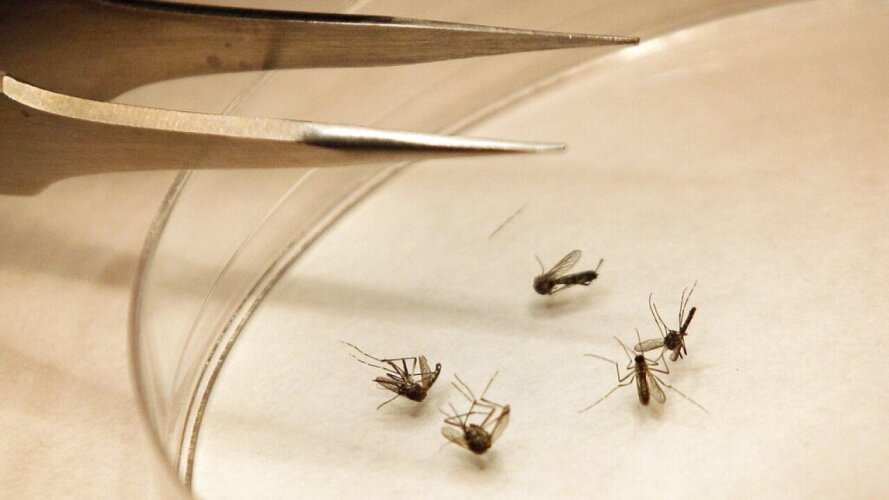SALT LAKE COUNTY — The first human case of West Nile virus of the year has been detected in Utah, according to the Salt Lake County Health Department. According to officials, the person was hospitalized earlier this month and is now recovering at home.
The person was likely infected in late July near the Jordan River in the southern half of the county and diagnosed with neuroinvasive West Nile virus, a more severe form of the disease.
Due to privacy laws, no additional information will be released.
So far this season, the three mosquito abatement districts in Salt Lake County have detected West Nile virus in 24 different mosquito samples throughout the county. Statewide, 108 mosquito samples have tested positive for the virus.
Because mosquitoes can travel several miles, everyone in the area—regardless of exact location—should take precautions against mosquito bites to avoid exposure to the virus.
West Nile virus can cause mid- to severe illness without people knowing they've been infected. People 50+ years of age and those with weakened immune systems are most susceptible to the disease, although anyone can become sick following a bite from an infected mosquito.
In 2024, public health officials confirmed 14 people in the state contracted the virus and 12 of those resulted in the neuroinvasive form of the disease. There were no recorded deaths from the fire in 2024.
Here are some tips on staying safe from West Nile virus:
- Use an EPA-registered mosquito repellent with DEET, permethrin, picaridin, IR3535 or oil of lemon eucalyptus; follow package directions about application.
- After dusk, wear long sleeves and pants.
- Drain standing water in yards (old tires, potted plant trays, pet dishes, toys, buckets, etc.).
- Keep roof gutters clear of debris.
- Clean and stock garden ponds with mosquito-eating fish or mosquito dunks.
- Ensure door and window screens are in good condition so mosquitoes cannot get inside.
- Keep weeds and tall grass cut short; adult mosquitoes look for these shady places to rest during the hot daylight hours.
“Mosquitoes in our area are carrying West Nile Virus,” said Nicholas Rupp with the Salt Lake County Health Department. “That patient is recovering at home…but West Nile Virus can be deadly.”
“It can take a few days up to two weeks for someone to show symptoms of illness,” Rupp added, saying symptoms usually starts with fever, headache and body aches.
Often, Rupp says it goes no further than that. But in a small percentage of cases like this one, the virus affects the brain and can become very serious.
This human case comes as the virus grows in prevalence throughout the county’s testing pools.
Salt Lake City’s Mosquito Abatement District says they’ve had 27 positive tests come from their pools around the area this year – and 20 have occurred within the past week.
“When I see this, we see these human cases, it tells me where we’re at in the progression of the virus,” said Christopher Bibbs, who directs the district’s laboratory.
He says while their concern lies with the densely populated city, much of their work begins in wetlands near the Great Salt Lake.
“[Mosquitoes] slowly migrate in over time,” Bibbs said. “They come into contact with birds, they start picking up virus, then we have the issues we’re having now.”
He notes that current drought conditions actually exacerbate the problem.
“When it’s dry, the people, the birds and the mosquitoes are all in the same water,” said Bibbs. “It makes it more likely that the mosquitoes are going to pick something up.”
When it comes to multiplying, mosquitoes are very opportunistic.
“You got old pools, you got derelict or foreclosed houses, you got things where you just got scrap and junk to collect water,” Bibbs said. “That stagnant water is really important.”
These mosquito abatement experts say it’s everyone’s job to look out for larval habitats and to protect yourself.
“Keep grasses trimmed low, so mosquitoes don’t have places to hide,” said Rupp. “Make sure you have screens on your windows and doors.”
“Make sure you wear light colored, baggy clothing,” said Bibbs. “Wear your repellant and be mindful of the fact that mosquitoes also come out when the weather is nice.”




